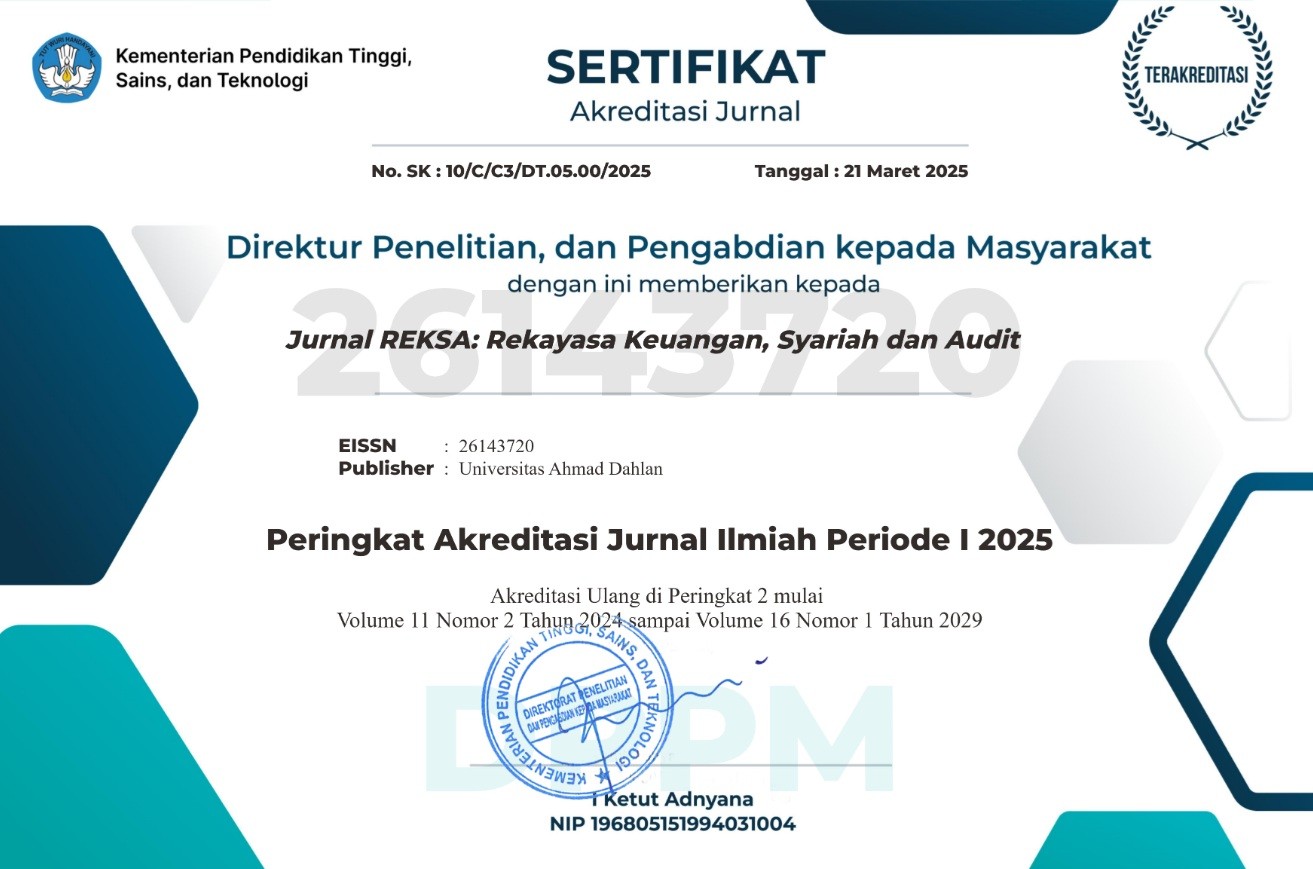PENGARUH TEKANAN KETAATAN, KOMPLEKSITAS TUGAS, PENGALAMAN, DAN MOTIVASI TERHADAP AUDIT JUDGMENT, GENDER SEBAGAI VARIABEL MODERATING
DOI:
https://doi.org/10.12928/j.reksa.v2i2.15Keywords:
gender, obedient pressure, task complexity, experience, and motivation, audit judgment.Abstract
This research has a purpose to understand and to analyze the influence of obedient pressure, task complexity, experience, and motivation for audit judgment with gender as moderating variable. From this research, it is able to get empirical evidence about the influence of obedient pressure, task complexity, experience, and motivation for audit judgment. Besides, this research also gives empirical evidence about the difference between man and woman in deciding audit judgment whether it correlates with several factor such as obedient pressure, task complexity, experience, and motivation. In this research, the researcher uses sample for auditors which is serve in the Public Accountant Office in DIY and Semarang. In this research, primary data is used as data, while General Linear Model (GLM) with helping IBM SPSS version 19.0 is used as analysis instrument. The result of this research is to indicate that task complexity influence for audit judgment, while obedient pressure, experience, and motivation do not influence for audit judgment. The issue about gender difference do not also moderate the influence of obedient pressure, task complexity, experience, and motivation for audit judgment.Downloads
Published
2018-06-09
How to Cite
Janah, N., & Yuniarto, A. S. (2018). PENGARUH TEKANAN KETAATAN, KOMPLEKSITAS TUGAS, PENGALAMAN, DAN MOTIVASI TERHADAP AUDIT JUDGMENT, GENDER SEBAGAI VARIABEL MODERATING. Jurnal REKSA: Rekayasa Keuangan, Syariah Dan Audit, 2(2), 120–138. https://doi.org/10.12928/j.reksa.v2i2.15
Issue
Section
Articles
License
Authors who publish with JURNAL REKSA agree to the following terms:
- Authors retain copyright and grant the JURNAL REKSA right of first publication with the work simultaneously licensed under a Creative Commons Attribution License (CC BY-SA 4.0) that allows others to share (copy and redistribute the material in any medium or format) and adapt (remix, transform, and build upon the material) the work for any purpose, even commercially with an acknowledgment of the work's authorship and initial publication in JURNAL REKSA.
- Authors are able to enter into separate, additional contractual arrangements for the non-exclusive distribution of the journal's published version of the work (e.g., post it to an institutional repository or publish it in a book), with an acknowledgment of its initial publication in JURNAL REKSA.
- Authors are permitted and encouraged to post their work online (e.g., in institutional repositories or on their website) prior to and during the submission process, as it can lead to productive exchanges, as well as earlier and greater citation of published work (See The Effect of Open Access).




